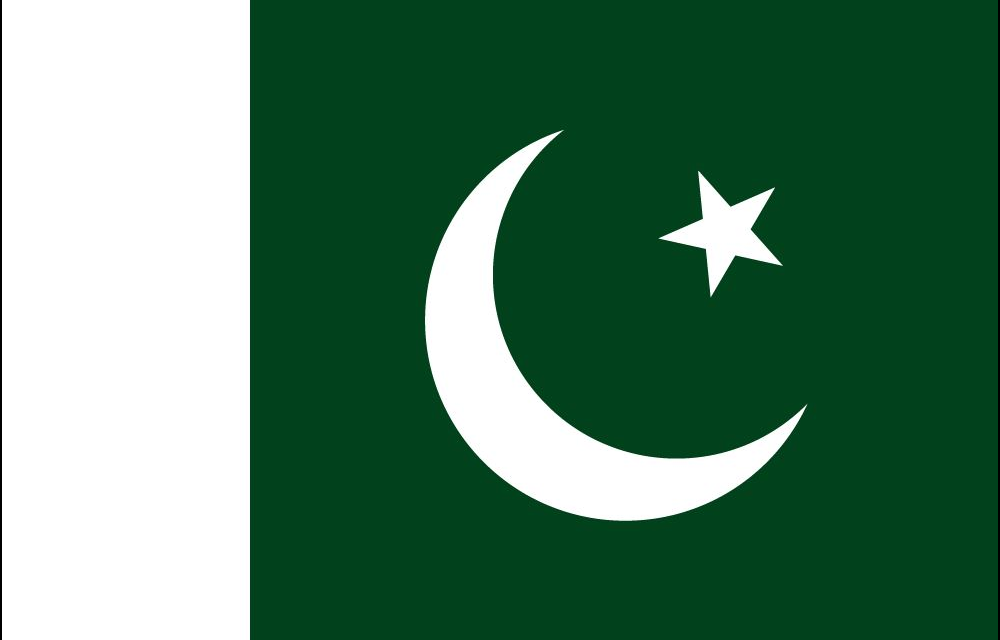The people of Afghanistan have suffered immensely due to decades of war in the country. After Afghanistan, the country that has suffered the most is Pakistan. The deteriorating security situation in Afghanistan due to hasty withdrawal of USA and related re-emergence of Taliban Regime, is the matter of most serious concern for the State of Pakistan. Pakistan has played its role with utmost responsibility towards the USA initiated Peace Process for Afghanistan in-line with international aspirations. Concurrently it is worth mentioning that the continuation of conflict and instability in Afghanistan, is certainly not in Pakistan’s interest.
Since 2001, Pakistan has suffered over 80,000 casualties and more than $l50 billion losses to the economy. Besides, these losses Pakistan continues to host over 4 million Afghan refugees, mostly from its own limited resources and the country is not in a position to deal with any further influx of refugees due to intensification of conflict by any actor in Afghanistan. Due to the instability and related cross-border security threats, Pakistan was compelled to undertake fencing of its 2,680 km long porous border with Afghanistan. To prevent the illegal movement, Pakistan has strengthened border management, and regularized the visa regime to ensure that all crossings take place through the designated crossing points.
Pakistan has extended over 1 billion US $ in development assistance to Afghanistan for projects in health, education and infrastructure. Pakistan is also extending useful cooperation to Afghanistan in the human resource development. More than 6,000 Afghan students are provided with fully funded scholarships to study in higher education institutes of Pakistan. A large number of these scholarships are for Afghan women. More than 50,000 Afghans educated from Pakistan are serving in Afghanistan’s public and private sector.
Pakistan considers that Peace in Afghanistan is a collective responsibility. Despite international community’s delayed approach towards political reconciliation, Pakistan has facilitated the Afghan peace process. During the last two years, our support for the peace efforts has led to key milestones in ‘Doha Peace Process’. In prevalent situation of Afghanistan, the State of Pakistan is committed to play its role towards peaceful, stable, sovereign, united, democratic and prosperous Afghanistan. It is believed that Afghan peace process is at a critical juncture and all international energies should be focused on inclusive, broad-based and comprehensive political settlement through an Afghan-led and Afghan-owned political process. This will facilitate in return of normalcy to the country and the region. Concurrently, Pakistan expects that it should not be held responsible for failures of others in Afghanistan and the international community should remain cognizant of the spoilers of the peace efforts, both inside and outside Afghanistan. Pakistan will continue to work with the international community to advance the shared objectives of peace, progress and stability in the region, and beyond.
Pakistan has no favourites in Afghanistan. We follow a policy of reaching out to all Afghan sides for an inclusive, broad-based and comprehensive political settlement in Afghanistan. Similarly, Pakistan’s influence on Tribal Groups / Taliban is limited. Afghans are independent in their views including deciding the future political system in Afghanistan. The situation demands enhanced commitment by the international community for continued engagement and financial support to the Afghan people to avoid Human Rights violations / humanitarian catastrophe.
Português:
SITUAÇÃO NO AFEGANISTÃO
O povo do Afeganistão sofreu imensamente durante décadas de guerras no país. Depois do Afeganistão, o país que mais sofreu foi o Paquistão. A deterioração da situação de segurança do território afegão devido à retirada precipitada dos Estados Unidos da América (EUA) e ao ressurgimento do regime Talibã são os assuntos que mais preocupam o Estado do Paquistão. O Paquistão desempenhou seu papel com maior responsabilidade em relação ao processo de paz iniciado pelos EUA para o Afeganistão, em linha com as aspirações internacionais. Ao mesmo tempo, vale a pena mencionar que a continuação do conflito e da instabilidade do território afegão, certamente não é do interesse do Paquistão.
Desde 2001, o Paquistão sofreu mais de 80.000 vítmas e mais de U$ 150 bilhões de perdas para a economia. Além disso, destas perdas, o Paquistão continua a hospedar mais de 4 milhões de refugiados afegãos e o país não está em posição de lidar com qualquer outro influxo de refugiados devido à intensificação do conflito por qualquer ator no Afeganistão. Devido à instabilidade e às ameaças de segurança transfronteiriças relacionadas, o Paquistão foi compelido a cercar sua fronteira porosa de 2.680 km com o Afeganistão. Para prevenir o movimento ilegal, o governo paquistanês reforçou a gestão das fronteiras e regularizou o regime de vistos para garantir que todas as travessias ocorram através dos pontos de passagem designados.
O Paquistão concedeu mais de U$ 1 bilhão em assistência ao desenvolvimento do Afeganistão para projetos de saúde, educação e infraestrutura. O Paquistão também está estendendo uma cooperação útil ao Afeganistão no desenvolvimento de recursos humanos. Mais de 6000 estudantes afegãos recebem bolsas de estudo totalmente financiadas para estudar em instituições de ensino superior do Paquistão. Muitas destas bolsas são para mulheres afegãs. Mais de 50.000 afegãos educados no Paquistão estão servindo nos setores público e privado do Afeganistão.
O Paquistão considera que a paz no Afeganistão é uma responsabilidade coletiva. Apesar da abordagem tardia da comunidade internacional em relação à reconciliação política, o Paquistão facilitou o processo de paz no território afegão. Durante os últimos dois anos, nosso apoio aos esforços de paz levou à marcos importantes no “Processo de Paz de Doha”. Na situação prevalecente no país vizinho, o Estado do Paquistão está empenhado em desempenhar o seu papel em prol de um Afeganistão pacífico, estável, soberano, unido, democrático e próspero. Acredita-se que o processo de paz afegão está em um momento crítico e todas as energias internacionais devem ser focadas em um acordo em um acordo político abrangente e liderados por afegãos. Isso vai facilitar o retorno da normalidade ao país e à região. Ao mesmo tempo, o Paquistão espera não ser responsabilizado pelos fracassos de outros no território afegão, e a comunidade internacional deve permanecer ciente dos estragos dos esforços de paz, tanto fora quanto dentro do Afeganistão. O Paquistão continuará a trabalhar com a comunidade internacional para promover os objetivos comuns de paz, progresso e estabilidade na região e além.
O Paquistão não tem favoritos no Afeganistão. Seguimos a política de alcançar todos os lados afegãos para um acordo político abrangente e uniforme na questão do Afeganistão. Da mesma forma, a influência do Paquistão nos Grupos Tribais / Talibã é limitada. Os afegãos são independentes em suas opiniões incluindo a decisão quanto ao futuro sistema político do Afeganistão. A situação exige um maior compromisso da comunidade internacional para o envolvimento contínuo e apoio financeiro ao povo afegão para evitar violações dos direitos humanos / catástrofe humanitária.
The diplomatic corps publications in this page are free of charge.
We kindly request the members of the diplomatic corps to send the texts in English and Portuguese, in Word format, to the email: pedro@theguide.com.br. You can also send an image in jpeg format related to the text.







